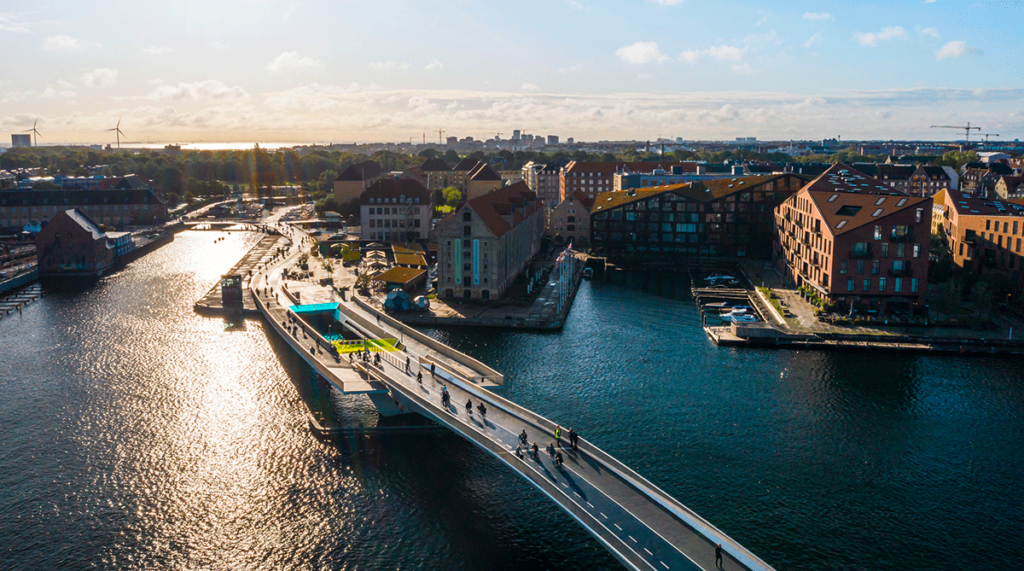Countries With The Best Healthcare In The World – that will be the topic of today’s article.
Before introducing this article, if you are interested in our core services which are expat financial, insurance and mortgages, you can contact me here.
The best time to consider your financial situation is when you are moving to a new country.
Introduction
As the world is trying to heal from the coronavirus pandemic, having a strong public health care system is as important as ever. Developed countries use various approaches to provide universal coverage for both expats and locals. While some rely on the government, other nations depend on private insurers.
Regardless of your options, having a well-developed public health system is one of nine attributes used to develop the quality of life sub-ranking in the 2021 Best Countries report. Also, the survey is based on a study that surveyed more than 17,000 global citizens from four regions to assess perceptions of 78 countries on 76 different metrics.
However, healthcare is a costly item in national budgets, but who gets the best value for money? Which country do you think has the best healthcare system in the world? While the top of the list was Norway, followed by the Netherlands and third-placed Australia, more is to know about healthcare.

Have you been surfing the internet to get the right information about the best healthcare system? Or you’re planning to relocate to a new country but wondering about the state of its healthcare? Worry less, as we’ve got you covered. There are a large number of world countries with free healthcare for everyone.
In this article, we will walk you through the countries with the best healthcare in the world. Not only is that, but you’ll also understand what countries have free healthcare, the types of the healthcare system, the countries with free healthcare for visitors, and many others. Would you like to know more? Read further!
Top 10 Countries with the Best Healthcare System
Healthcare is a broad term that’s used to describe the various systems humans rely upon. This health system helps us maintain our personal health through the treatment of illness, injury, disease, and other physical or mental impairments. Also, it encompasses medical doctors and hospitals, and dentistry.
As of today, the nationwide healthcare system takes many forms, and access to healthcare varies across countries, municipalities, and individuals and is primarily influenced by economic and social factors. Besides, access to good quality healthcare is seen as a fundamental human right by many people.
On the other hand, healthcare quality is determined by considering a wide range of factors, including the care process, engagement, affordability and timeliness, healthcare outcomes, administrative efficiency, and many others, to mention a few. Now, check the list of the top 10 countries with the best healthcare system in the world.
1. South Korea

As of the time of writing this article, we can tell you that South Korea has the best healthcare system in the world. This information is according to the 2021 edition of the Health care Index, and it ranks 89 countries according to factors that contribute to overall health. The Ministry of Health and Welfare runs the South Korean healthcare system. Also, it’s free to all citizens at the point of delivery.
The country’s healthcare offers the choice of occidental medicine or traditional oriental treatments, many of which have been extensively researched and developed alongside their modern counterparts. Aside from this fact, South Korea also takes into consideration other factors including, environmental, access to clean water, government readiness on imposing penalties on risks such as tobacco use and obesity.
2. Taiwan

Taiwan is the second on our list. This country operates a single-payer healthcare system, where one public agency controls healthcare for everyone. Moreover, before implementing the program, private insurance companies provided coverage for around 57 percent of the country’s citizens.
That being said, enrollment in national healthcare is mandatory. This means all Taiwanese citizens must be enrolled in the NHI program, as well as expatriates staying in Taiwan for more than six months. Let’s quickly walk you through the four interesting facts about the healthcare system in Taiwan.
- Citizens have autonomy within the system. While the healthcare system in South Korea is national, doctors and hospitals still operate privately. More so, residents of Taiwan may choose which establishments they visit, but they must present their NHI IC cards when they receive treatment.
- NHI in South Korea covers virtually everything. Moreover, they guarantee free coverage for preventive care such as child care and cancer screenings. Not only is that, but it provides care for mental health as well as general primary care. Locals under the NHI are also given access to the basics, such as medicine and checkups.
- Healthcare costs are low for everyone. The NHIA stratifies patients based on their income and financial need, which means low-income workers have their healthcare completely subsidized. Again, the system caps prescription drug copayments at $6.64 and specialized physician visit at about $14.
- The Healthcare system in South Korea is incredibly efficient. Because of the nationalized system in South Korea, healthcare administration costs are low in Taiwan. As a result, the country only spends about ^percent of its GDP on the healthcare system every year.
3. Denmark

There are many things to note about the healthcare system in Denmark. First, it is a country in Northern Europe, and it’s one of the wealthiest countries in the world, and is notable for its healthcare system. Not only is that, but the Social Progress Index 2017 rated Denmark first in the world for quality of life. Meanwhile, it also scored 99.28 percent in nutrition and basic medical care. Below are the facts about healthcare in Denmark.
- Locals tax revenue funds healthcare in Denmark. As of today, the state government, regions, and municipalities operate the healthcare system, and each sector has its own role. Aside from this fact, the state government creates general healthcare plans and regulations and allocates funding, while the regions and the municipalities are responsible for making specific plans according to socio-demographic criteria.
- Effective healthcare system. One fact you still don’t know about Denmark is that the healthcare system runs more effectively than other developed countries, such as the U.S. and other European countries.
- Its high-quality healthcare system increases life expectancy. Undoubtedly, Danish life expectancy slightly exceeds the average of the E.U. Again, the overall life expectancy of Danish citizens is 81.3 years. However, Danish women have a higher life expectancy than men, unlike other countries in the world. But a 65-year old Danish woman can expect to live almost another 20.7 years and men another 18 years in the country.
- Cancer and cardiovascular diseases are the top two causes of death in the country. Also, chronic diseases like musculoskeletal problems and depression are not necessarily killers but lead to poor health.
- Healthcare in Denmark sets a good standard for elderly care. It’s no doubt that a large percentage of the population is aging, as research disclosed that more than 19 percent of Danish citizens are above 65 years old.
4. Austria

Austria also made it to the top ten countries with the best healthcare system in the world. This country has a two-tier healthcare system in which virtually all individuals receive publicly funded care. But they also have the option to purchase supplementary private insurance in Austria.
In fact, some locals prefer to pay for their healthcare privately. Meanwhile, the vast majority of the Austrian population has access to healthcare, as long as an individual is not willingly choosing to be unemployed. Below are the facts about Austria’s healthcare system.
- Life-long private providers are available in Austria. In fact, for those who choose to pay for private or supplementary healthcare, insurance companies are not allowed to have restrictions within contracts, nor are they allowed to terminate any individual’s healthcare without permission in the country. Also, the private healthcare service can only be terminated by individuals, allowing the user to have access to life-long healthcare services.
- High accessibility to hospitals and pharmaceuticals is what you’ll enjoy in this country. Despite the decline in hospital bed availability worldwide, Austria has 271 hospitals containing more than 64,000 beds and around 45,000 doctors, classing the country as having one of the highest bed/patient ratios in Europe.
- Tourists have access to the healthcare system in Austria. Surprisingly, if you’re coming to this country for the first time, you have access to request free healthcare. For those visiting Austria with a European Health Insurance Card, access to public healthcare is enabled. That being said, it does cover basic doctor’s visits, dental services, and even emergency hospital visits.
5. Japan

Japan’s statutory health insurance system provides universal coverage. Some of the benefits of using this healthcare system include primary, hospital, specialty, and mental healthcare. In addition to this, the locals or citizens of this country pay 30 percent coinsurance for most services and some copayments.
Furthermore, every Japanese citizen is eligible for medical treatment through universal health care with coverage of nearly 100 percent, and the government strictly regulates medical costs. Also, a minimum of 70 percent of healthcare costs is covered by health insurance provided by the government or an employer. Some of the interesting facts about Japanese healthcare include the following.
- Everyone has healthcare coverage in Japan. Established in 1961, Japan’s universal health insurance sought to provide people equal access to necessary and adequate medical care at low costs. Citizens can either receive coverage through social insurance if they work for a corporation or through national medical insurance if they’re self-employed.
- Provision of various medical services. The insurance plans in Japan include; primary and specialty care, mental healthcare, and dental healthcare. These insurance plans also cover the prescription of drugs that physicians and hospice care approve for the elderly. For pregnant women in Japan, the local government often subsidizes check-ups, making it easier for women to access adequate medical care.
- The Healthcare system in Japan is extremely equitable. An individual’s income makes less of an impact in influencing the quality of care in Japan compared to many other countries. And this is because; the fee schedule for medical care is uniform across the nation, as everyone pays the same price.
6. Australia

In Australia, citizens access care for free or at a lower cost through Medicare (funded by tax). Besides, the private system includes health service providers that are owned and managed privately. Examples include; private hospitals, pharmacies, specialist medical, and allied health.
If not more, Australia has more than 1,300 public and private hospitals that provide emergency department care, outpatient clinic care, and for admitted patients. Not only is that, but public hospitals provide the majority of emergency department care and outpatient care, while private hospitals deliver 67 percent of all elective surgery.
7. France

Undoubtedly, the Dubai healthcare system is one of the universal healthcare largely financed by government national health insurance. Aside from this fact, approximately 77 percent of health expenditures are covered by government-funded agencies.
Again, most general physicians are in private practice but draw their income from the public insurance fund. In general, we can tell you that French healthcare is very reasonable compared to other countries you could ever imagine. In fact, most health costs, including specialists and dentists, are covered up to 70 percent, and hospital visits up to 80 percent.
Additionally, the French public health care system is recognized for its high quality, speed, and affordability all over the world. As every resident is required to have medical coverage, expats have the choice of either purchasing private insurance or paying into the public health system.
8. Spain

Spain has both a private and public healthcare system. The public healthcare system in this country provides free basic healthcare to those who contribute to the Spanish social security system and their families.
This, however, entitles them and their families to receive free or subsidized medical care on the same terms as Spanish residents. Just like a few of the countries mentioned above, Spain has a public healthcare system, mainly financed by taxes. As a result, healthcare in Spain is either free or low-cost for residents paying social security. Below are the interesting facts about Spain’s healthcare system.
- Mental health is taken very seriously in this country. As of today, taking care of one’s mental health has become a major topic recently, but Spain has always valued the mental health of its locals or citizens. Also, they offer amenities and services, including free prescription drugs.
- Healthcare in the country is taken seriously. Along with the country’s amazing healthcare coverage for adults, Spain offers equally superb healthcare opportunities to children. Meanwhile, according to Expatica, the healthcare offered to children in Spain includes prenatal and postnatal care, free vaccinations until age 14, dental care until age 15, access to 23 different types of specialty practitioners, and many others, to mention a few.
9. Belgium

The Belgium healthcare system is considered one of the best in Europe. The state system is funded by mandatory health insurance, allowing residents to access subsidized services in different states. Some of the services include; hospital care, doctors, maternity cost, dental care, and prescriptions.
Furthermore, both federal and regional governments have responsibility for healthcare in Belgium. Also, in this country, the social security system includes the mandatory public insurance for medical care and benefits, as well as pensions, unemployment benefits, and many more.
In addition to what we mentioned above, all public health insurance funds offer their members a package of additional insurance policies and services. Membership fees finance those extra services. This way, all those who pay an annual membership fee are automatically entitled to these extra services. For the most expensive options, you’ll pay an extra premium in addition to your regular membership fee.
10. United Kingdom

The United Kingdom also made it to the top ten countries with the best healthcare system in the world. They provide public healthcare to all permanent residents, about 58 million people. Also, its coverage is free at the point of need and is paid for by general taxation. Besides, about 18 percent of a citizen’s income tax goes towards healthcare, which is about 4.5percent of the average citizen’s income.
Factors to Consider When Choosing Healthcare System
We all need healthy living if we want to avoid paying a fortune every time we have a health issue in a country. As more people seek accurate, holistic, and cost-effective care, the healthcare industry is opening new options and expanding its reach as of today.
Many people don’t think twice about these facilities unless they need them. But, it’s quite wrong as this shouldn’t be the right thing to consider. Healthcare is a hot career destination for many, and it’s good to know more about the facilities you may end up working in if you choose to pursue a healthcare career. Therefore, let’s quickly walk you through the factors to consider when choosing a healthcare system.

● Clinic and Medical Facilities
This is one of the first things to put into consideration whenever you’re trying to select the country to relocate to, especially when you want to retire. Many people go to a clinic for routine doctor’s appointments and checkups but fail to research well about the country. Meanwhile, clinics cover a lot of ground in healthcare, and if there’s specialized healthcare you need, it’s better to search for the best clinic that’d accommodate you.
● Mental Health and Treatment Center
It’s quite essential to check the mental health and treatment center. Not only will you check this but you should know the facilities they use to approach such problem. This is because; mental health treatment facilities sometimes exist as a general institution for any mental health issue and are sometimes specialized. Also, check if there are addiction treatment centers that deal with drug and alcohol addiction.
● Rehabilitation and Urgent Care
Orthopedic and rehabilitation centers are other things you should look out for when visiting a country for the first time. They typically offer evaluation and diagnosis of the problem, as well as prevention, treatment, and rehabilitation work involving bone, joint conditions, ligament, muscle, and many others.
There are also rehabilitation centers where patients can receive various therapies to help restore their abilities after an illness or injury. Besides, urgent care should also be considered in choosing the right care. If a problem is too severe, then urgent care in your chosen country should provide a solution.
Frequently Asked Question about Healthcare System

Where is the best healthcare system?
As mentioned above, there are many healthcare systems in the world. But it’s quite essential to pick the best. So, don’t be surprised that we only listed ten as there are more to consider. However, we can tell you confidently that the ones listed above are countries with the best healthcare system as ranked in 2021.
What is a universal health care system?
A universal health care system means that all people have access to the health services they need, when and where they need them, without financial hardship in their country of residence. Some of the universal health care systems include; a full range of essential health services, rehabilitation, and palliative care.
What are the goals of the healthcare system?
Redefining health as the effort to derive pleasure and value from life’s journey suggests that the purpose of health care is to help each person achieve four major goals. Some of the goals include; prevention of premature death and disability, personal growth and development, and enhancement of quality of life.
Why is healthcare good for expat?
Providing all citizens the right to health care is good for economic productivity. When people have access to health care, they’ll live healthier lives and miss work less, allowing you to contribute more to the economy. So, before traveling to your preferred location, always look for the right healthcare system. Moreover, high-quality health care helps prevent diseases and improve the quality of life as an expat or locals.
Is the healthcare system a privilege or a right?
There is a major global consensus that health – and all the circumstances that mediate health – is a fundamental human right. Therefore, as an expat, you have the right to seek for free healthcare whenever you move to a new country. Meanwhile, it’s always better to enroll in health insurance as well.
Conclusion
The best hospitals in the world will definitely have all the medical facilities you need. If possible, you may need to engage with healthcare providers to ask good questions about the healthcare system of the country you’re relocating to. Nonetheless, refer to this guide to know more about the country with the best healthcare system in the world.


